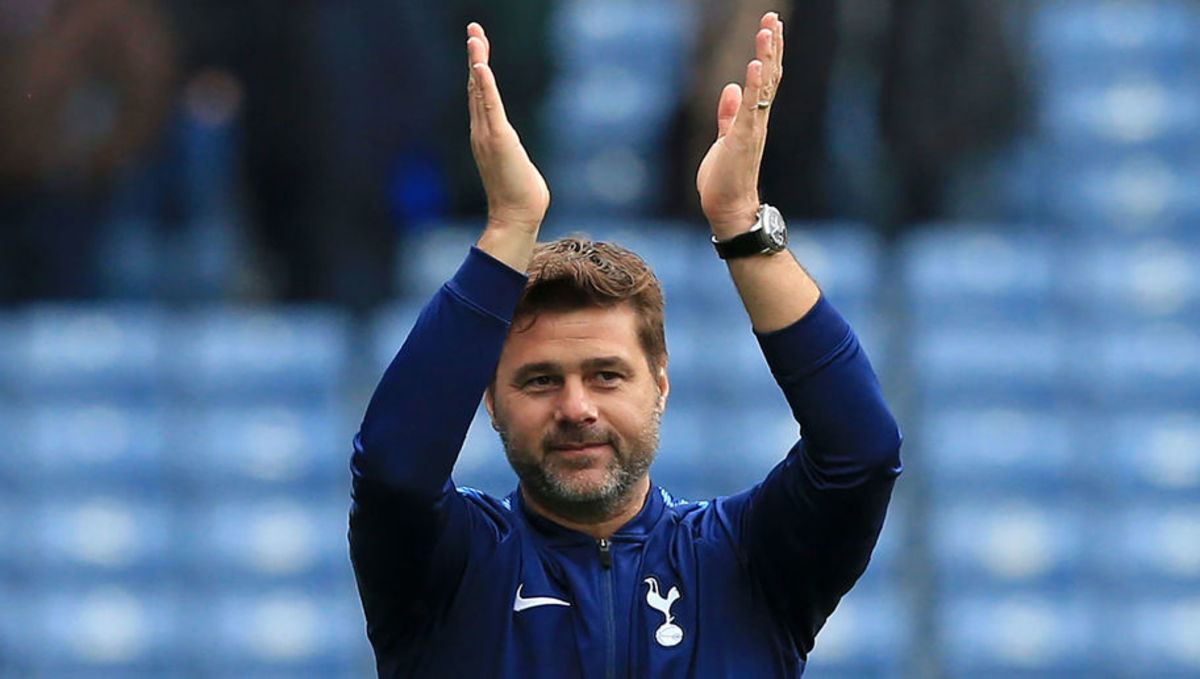Foreign Touch: How Mauricio Pochettino Has Worked Wonders for the England National Team
Rewind back to January 2013. After leading the club to back to back promotions, Southampton announced that they had sacked boss Nigel Adkins with the south coast club sat comfortably in 15th place in the Premier League, and that former Espanyol boss Mauricio Pochettino would be taking over.
With Adkins being a well respected figure at the club due to his commitment and achievements in guiding the club from the depths of League One to the Premier League, his sacking was met with an outcry from fans of Southampton and football in general, and had many questioning his Argentinian replacement's credentials at the top level of the English game.
How wrong they were.
Pochettino went on to guide the Saints to impressive victories over Manchester City, Liverpool and Chelsea, leading them to a 14th place finish in their first season back in the top flight and five points above the relegation zone to all but put to bed any doubts people had over his managerial qualities, but its what he has done since being controversially appointed at St. Mary's that has made people sit up and take notice.
The Argentine led Southampton to an 8th placed finish the following year, recording the Saints' record Premier League points tally and finishing just eight points behind Manchester United. Pochettino was credited with massively developing the skills of players such as Nathaniel Clyne, Luke Shaw, Calum Chambers, Adam Lallana, and Jay Rodriguez, all of whom went on to win caps for England following the Argentine's tutelage.
The magnitude of the job Pochettino had performed on the south coast led to interest from Tottenham, and the 45-year-old duly signed a five year deal at White Hart Lane to take over following Tim Sherwood's dismissal.
The former Espanyol boss steadied the ship in north London, guiding Spurs to a fifth-placed finish and proving to be a bold selector by choosing to play youngster Harry Kane over £30m man Roberto Soldado, but it is this sort of boldness that will see the England national team reap the rewards in years to come.
What is particularly ironic, however, is that just over 15 years ago, Pochettino was lining up against England at the 2002 World Cup and was culpable for bringing down Michael Owen in the penalty box to gift the Three Lions a 1-0 win, albeit controversially.
The significance in the matter being the fact that the Tottenham boss was incidentally facing off against the likes of Rio Ferdinand, Paul Scholes, David Seaman and David Beckham - all of who it can be argued that they have since done less for the national team than the long haired centre half for the Albiceleste that day in June all those years ago.
Along with Kane, Pochettino has also been responsible for the breakthrough of players such as Dele Alli, Kyle Walker, Eric Dier, Danny Rose and most recently Harry Winks, and has been highly acclaimed for nurturing the English core of both Southampton and Spurs when other managers may have been tempted by the foreign market.
Since arriving in England, Poch has emphasised the significance of nurturing youth, so much so that following Wink's debut against Lithuania, 15 of the last 29 debutants for the England national team have now been coached by the Argentine.
The aforementioned Kane has gone from Leicester City loanee to the Ballon d'Or shortlist in the space of four years under Pochettino, earning the England captaincy in the process, whilst Alli has also become one of the best young players in world football as a result of the former Saints man's coaching methods.
Pochettino has undoubtedly been responsible for moulding the core of the England national team in just under five years, with the likes of the aforementioned Kane, Alli, Walker and Dier set to start for the senior team at next summer World Cup in Russia, and any success England get from that tournament will be undoubtedly down to the Spurs boss more than Gareth Southgate.






